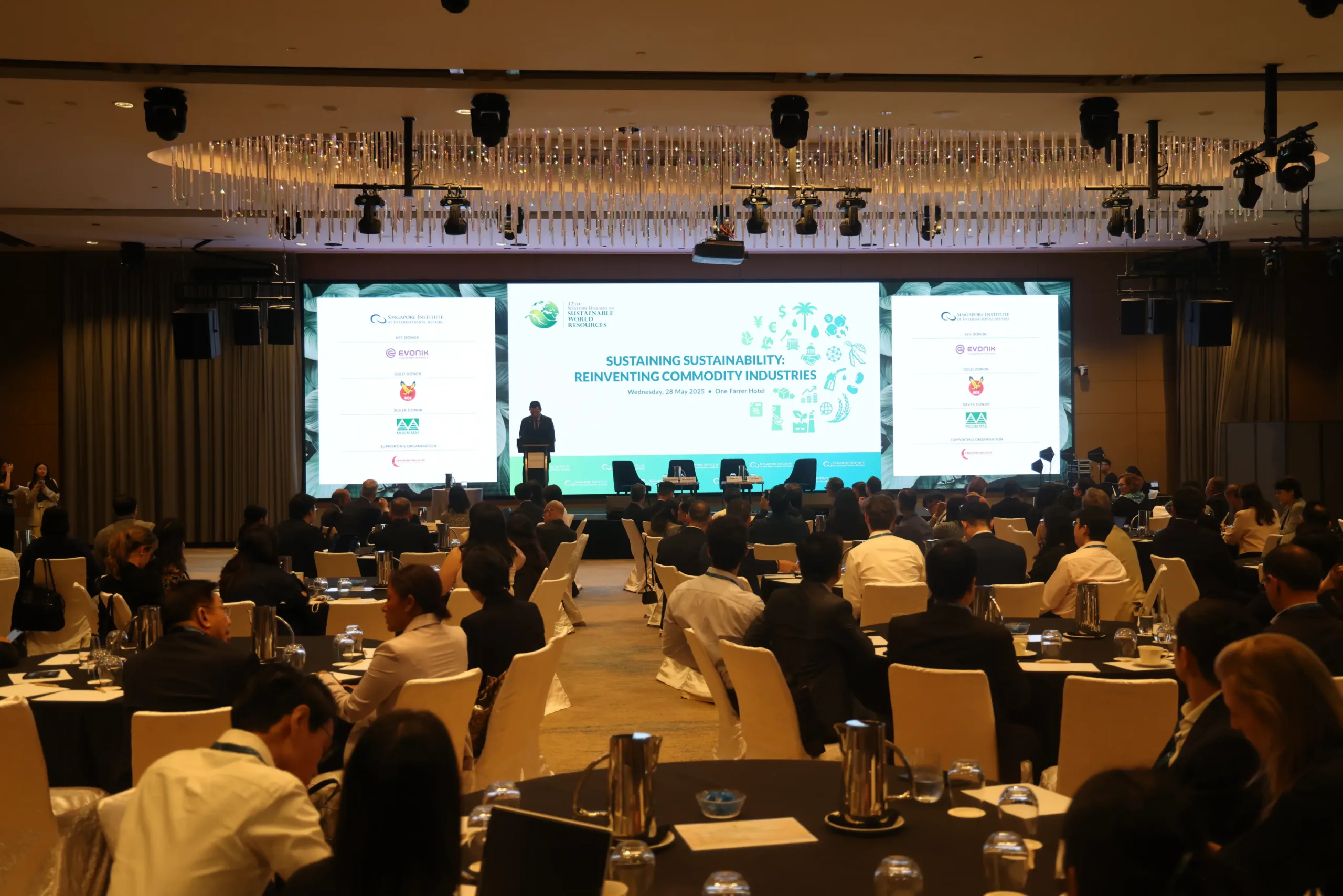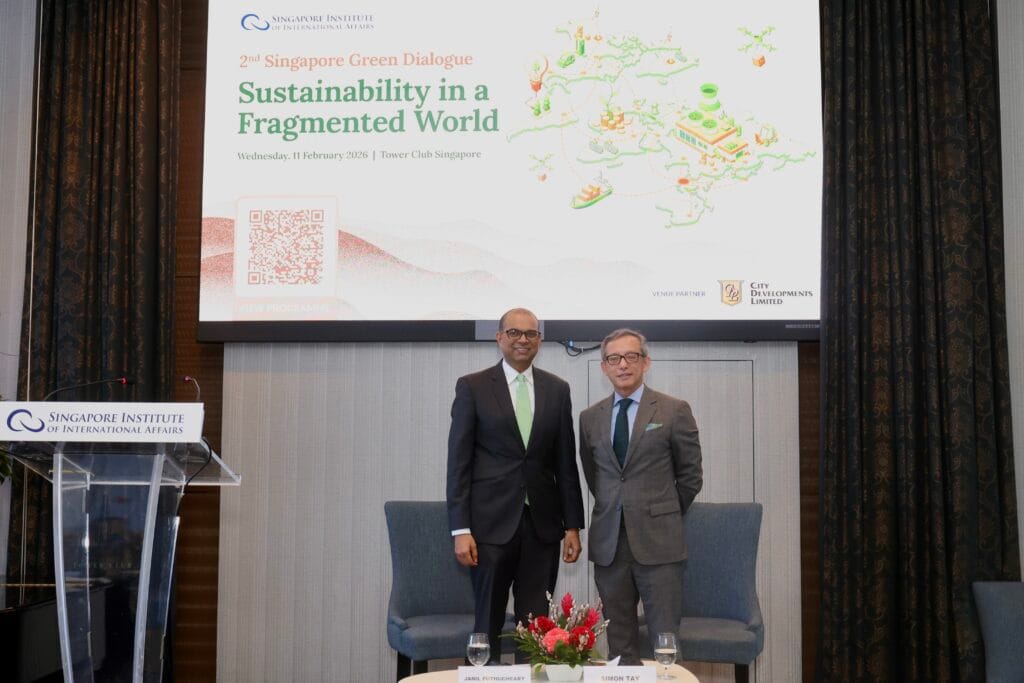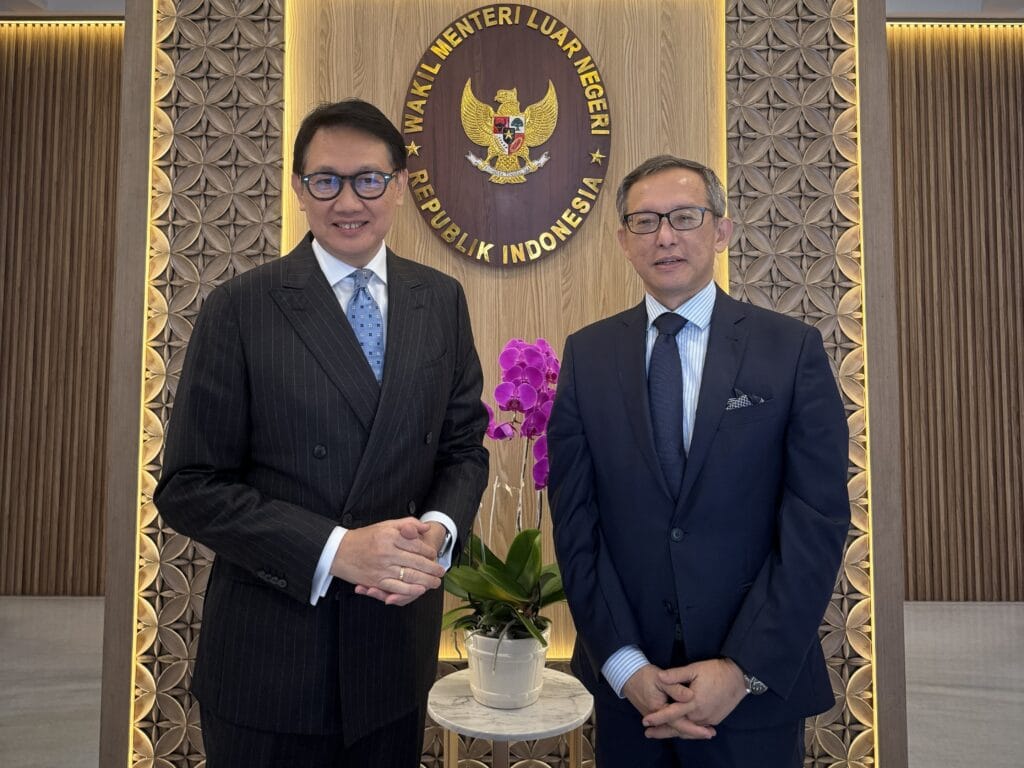Media Release
For Immediate Release
ASEAN must not waver on sustainability amid global uncertainty: Experts at 12th SWR
Singapore, Wednesday, 28 May 2025: ASEAN must stay the course on its sustainability commitments amid mounting global uncertainty. This was the key takeaway from the 12th Singapore Dialogue on Sustainable World Resources (SWR), where speakers stressed that the region must move quickly to align trade, climate, and supply chain strategies – or risk falling behind.
Hosted by the Singapore Institute of International Affairs (SIIA) at One Farrer Hotel, the 12th SWR brought together 190 participants from government, business, finance, civil society, and academia. With the theme “Sustaining Sustainability: Reinventing Commodity Industries”, this year’s dialogue explored how ASEAN’s agribusiness and resource sector can stay competitive while responding to disruptions such as trade tariffs and tightening import-export rules.
In her keynote address, Ms. Grace Fu, Singapore’s Minister for Sustainability and the Environment and Minister-in-charge of Trade Relations, said that “climate change waits for no one”, and that it is “imperative for ASEAN to deepen cooperation in climate action”. To take ASEAN forward, she said that “ASEAN countries must build on the work that has been done and continue the spirit of cooperation”.
Ms. Fu said that Singapore remains committed to supporting sustainable agribusinesses despite not having a significant traditional agriculture industry, as Singapore is a finance hub for many agribusinesses and commodities traders and is growing its agri-tech sector. “Sustainable agribusiness and forestry practices are good for business and good for [the] environment,” she said.
Echoing the call for international cooperation, YB Datuk Seri Johari Abdul Ghani, Malaysia’s Minister of Plantation Industries and Commodities, said that addressing sustainability at the national level isn’t enough – countries must work together with their neighbours.
“Malaysia is strongly committed to the global sustainability agenda. We have set out ambitious sustainability targets,” he said, highlighting Malaysia’s aim to achieve net zero emissions by 2050, while retaining at least 50 per cent of its forest cover indefinitely. This means that Malaysia’s palm oil and other agricultural commodity industries are focusing on intensifying their production on existing land with no deforestation. “That’s our commitment to the world,” YB Datuk Seri Johari added.
SIIA Chairman Associate Professor Simon Tay said in his opening remarks that recent geopolitical shifts have disrupted the world’s ability to advance the green transition. Despite these challenges, he noted that Southeast Asia’s commodity markets have remained resilient, and that both ASEAN countries and the region’s agribusinesses need to stay the course on sustainability.
“We cannot return to unsustainable plantation expansion at the expense of natural ecosystems,” said Prof. Tay. “Agriculture will remain an economic driver for the region, but we need smarter and greener business models. This is not a matter of ideology, but pragmatism.”
In a fireside chat, Mr. Sunny Verghese, Co-Founder and Group CEO of Olam Agri, shared his outlook on future consumption trends and how they will impact food and agricultural production. “We need to increase food production by roughly 56 per cent from what we are producing today by 2050,” he said, based on global population estimates. This production needs to be achieved without exacerbating issues such as deforestation and biodiversity collapse while also ensuring a living income for farmers.
“The next wave of productivity growth that we need requires breakthrough technologies, not incremental growth technologies,” Mr. Verghese added, calling for more investment in innovation.
Panellists at the 12th SWR also discussed broader market trends, investor expectations, and the need for greater cross-border collaboration to ensure that ASEAN’s green transition is fair, effective, and economically viable.
The SWR reflects the SIIA’s distinctive role as a neutral convener across policy and business. As Singapore’s oldest independent think tank, the SIIA sees sustainability not as ideology but as a practical challenge — and opportunity — for the region. Through platforms like SWR, the SIIA brings diverse stakeholders together to foster realistic, collaborative, solutions.
The 12th SWR was made possible with the support of the following organisations:
- Key donor: Evonik
- Gold donor: RGE (Royal Golden Eagle)
- Silver donor: Musim Mas
***
For further enquiries, please contact the SIIA at media@siiaonline.org.
***
Singapore Institute of International Affairs (SIIA)
The Singapore Institute of International Affairs (SIIA) provides insights and perspectives for policymakers, businesses and individuals in navigating issues facing the world. Our work serves as a bridge between these stakeholders, to nudge policy change through dialogue and collective action.
As a founding member of the ASEAN-ISIS (ASEAN Institutes of Strategic and International Studies) network since 1988, we engage in “Track II” diplomacy, fostering dialogue among stakeholders in our region and beyond.
We have been consistently ranked as one of the leading think tanks in Southeast Asia and the Pacific, in the Global Go-To Think Tank Index* by the University of Pennsylvania. Since 2017, we were ranked the No. 1 independent think tank in Asia. We were also recognised as one of the top 50 think tanks globally, excluding the United States of America. In 2019, we were recognised as the No. 1 think tank in South Asia, Southeast Asia, and the Pacific (excluding India). In 2020, we were also recognised as one of the think tanks with the best policy and institutional response to the COVID-19 pandemic.
Our vision is to contribute to a region that is inclusive, peaceful and prosperous – an integrated, sustainable and globally competitive ASEAN and a Singapore that is an open, dynamic hub and responsive node.
*Note: Professor James McGann, the creator of the Global Go To Think Tank Index, passed away in 2021. As a result, the Index has not been updated. The Lauder Institute has not indicated when or if it will continue publishing the Index. The index was last published in 2020.




